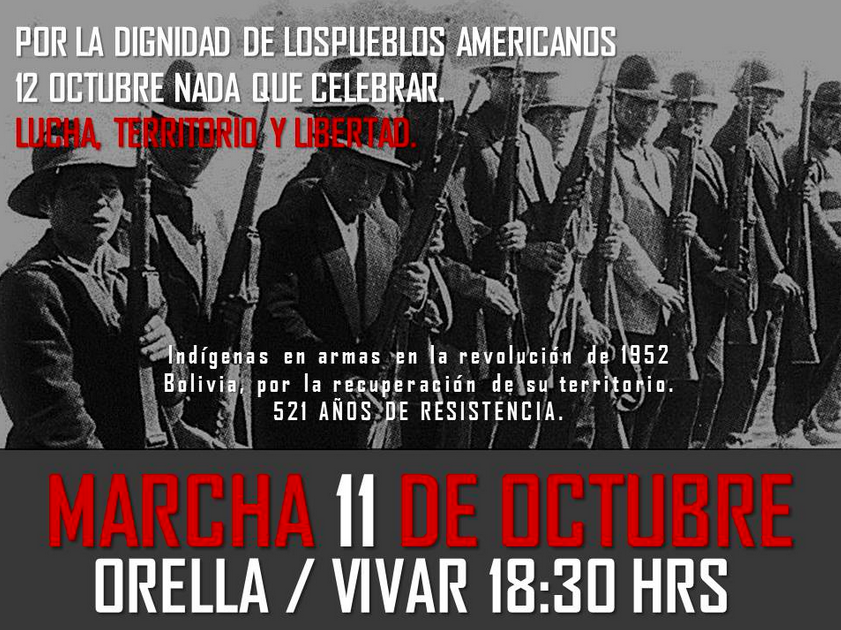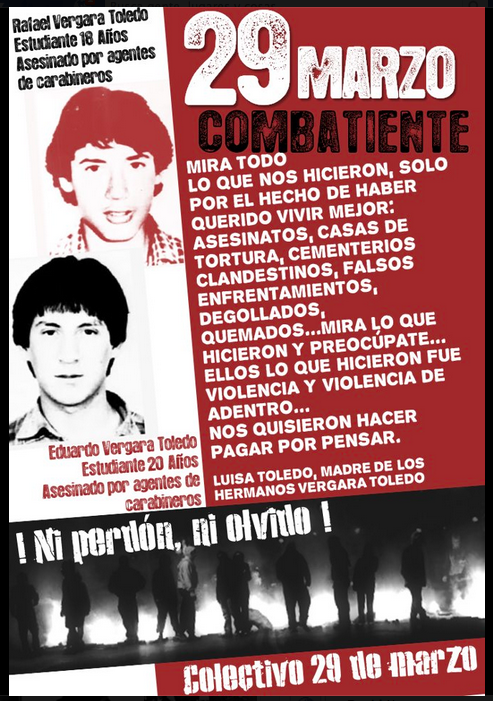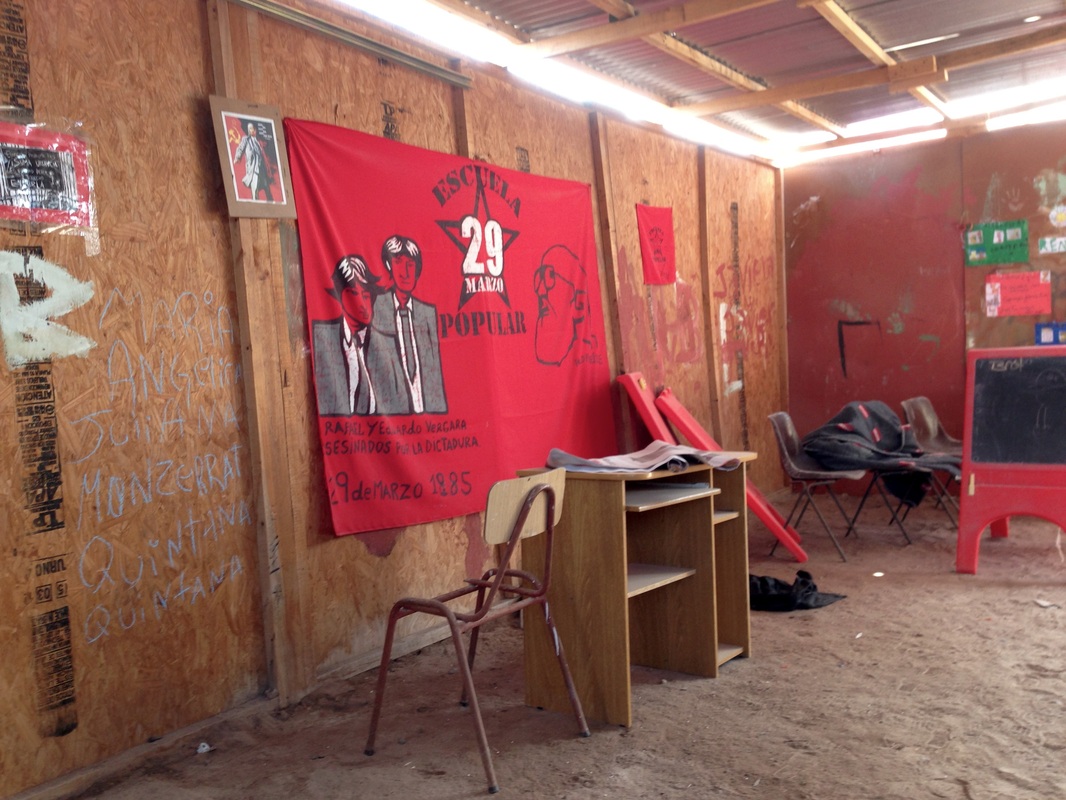|
In general, Chile seems to be a place where politics is always a topic of conversation. I would say this is true even more than when I was living in Washington, DC, and certainly more than my experiences in Bolivia. Memorializations of political events are constantly popping up on facebook (see screen shots below), and particularly the dates of certain political events become names of social organizations. While in Bolivia there are many streets named after the dates of important political events (i.e. Avenida 6 de Agosto—which is the date on which Bolivia gained independence), in Chile the dates used for less formal naming are often the dates on which important political figures were assassinated. My prime example of this is an afterschool tutoring program that Juan and Raquel introduced me to. Less than a year ago, a group of about 10 university students in Iquique built from scratch a building the neighborhood where Juan grew up and now offer tutoring on Tuesday and Saturday afternoons for kids who live nearby. The school is called Escuela Popular 29 de Marzo after two brothers that were assassinated by the Pinochet regime on that date. Their pictures appear on a large banner on one wall, and the first time I attended everyone was making t-shirts with their faces and the school’s logo. A painting of the 2 assassinated brothers, Rafael y Eduardo Vergara Toledo, takes up left side of the banner and the likeness of Paulo Friere, author of Pedagogy of the Oppressed, occupies the right. In the photo above, next to the banner is a small picture of Vladmir Lenin. On another wall is a similar small photo of Subcomandante Marcos of the Ejercicio Zapatista Liberacion Nacional (Zapatistas). This is in contrast to photos in the one official colegio I have entered in Alto Hospicio, which is a Jesuit institution. There, like in all official schools in Chile, a picture of President Piñera is prominently displayed in the lobby and in each classroom. These pictures of political figures in the Escuela Popular, along with its name, clearly communicate allegiance to a different sort of politics than the nationalism displayed in official schools.
0 Comments
Your comment will be posted after it is approved.
Leave a Reply. |
themes
All
archives
August 2022
|



 RSS Feed
RSS Feed
